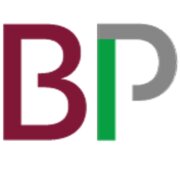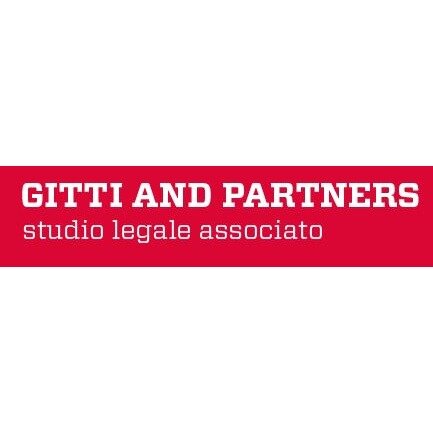Best Project Finance Lawyers in Italy
Share your needs with us, get contacted by law firms.
Free. Takes 2 min.
Or refine your search by selecting a city:
List of the best lawyers in Italy
About Project Finance Law in Italy
Project finance in Italy refers to a financing technique used to fund large-scale infrastructure and industrial projects by relying on the projected cash flows of the project itself, rather than the balance sheets of its sponsors. Common applications include energy facilities, transportation infrastructure, telecommunications networks, and public-private partnership (PPP) arrangements. Italian project finance law is characterized by complex arrangements between public authorities, private sponsors, banks, and other stakeholders, often involving long-term contracts and sophisticated risk allocation.
Why You May Need a Lawyer
Given the size, complexity, and regulatory framework of project finance transactions in Italy, legal advice is very often crucial. You may require a project finance lawyer if you are:
- Looking to develop, invest in, or lend to energy, infrastructure, or industrial projects
- Negotiating contracts, such as concession agreements, EPC (Engineering, Procurement and Construction) contracts, or operation and maintenance agreements
- Engaged in public-private partnerships with government entities
- Dealing with the issuance of permits and regulatory compliance
- Structuring the financial aspects of a project, including drafting loan agreements and securities
- Managing disputes or claims arising during project execution
- Understanding the tax implications of the project’s structure
- Addressing environmental, zoning, or urban planning issues
A specialized lawyer can help safeguard your interests, reduce risks, and ensure your project complies with all Italian laws and regulations.
Local Laws Overview
Project finance in Italy is governed by a mix of EU regulations, national legislation, and local municipal rules. Here are some key aspects:
- Public Procurement Law: Project finance often involves public works or services, regulated by the Public Procurement Code (Legislative Decree No. 36/2023). This code sets out procedures for bidding, awarding contracts, public-private partnerships, and the use of concession agreements.
- Banking and Financial Regulation: The Bank of Italy and CONSOB supervise transactions involving funding from banks and capital markets, ensuring stability and transparency in financial arrangements.
- Security and Collateral: Italian law provides various ways to secure project loans, including mortgages, pledges, and assignments of project receivables. These protections are vital for lenders.
- Permitting and Environmental Compliance: Projects must comply with urban planning, environmental protection, and health and safety rules, often requiring multiple local, regional, and national permits.
- Tax Regime: The tax framework for project finance arrangements in Italy is nuanced, involving VAT, registration duties, and corporate taxes.
- Special Regimes for Strategic Sectors: Sectors like energy, water, and transport often have additional regulations and may be subject to golden power rules safeguarding national interest.
Frequently Asked Questions
What is project finance and how does it differ from traditional loans?
Project finance is a method where the repayment of loans is reliant on the revenue generated by the project itself, and not on the assets or income of the sponsors. It typically involves non-recourse or limited recourse loans.
What types of projects are commonly financed through project finance in Italy?
Energy plants, renewable energy facilities, highways, railways, hospitals, waste treatment plants, and telecommunication infrastructure are common. Public-private partnerships are prevalent, especially for infrastructure.
What entities are involved in a typical project finance transaction?
Key players include sponsors (private investors), lenders (banks or financial institutions), public authorities, contractors, operators, and technical consultants.
What legal documents are essential for a project finance deal?
Essential documents include project agreements (concessions, supply, O&M), finance documents (loan agreements, security documents), shareholder agreements, and direct agreements with lenders.
Are there special considerations for projects involving public authorities?
Yes. Public projects are subject to strict procurement rules, transparency requirements, and controls to ensure public interest and competitive bidding.
What risks do lenders typically focus on in Italian project finance?
Lenders scrutinize construction/completion risk, operational risk, market risk, regulatory changes, and political risks, often requiring detailed risk mitigation strategies.
What is a Special Purpose Vehicle (SPV) in project finance?
An SPV is a company set up solely to execute and operate the project. It is legally separate from sponsors to limit liability and isolate project risks.
How are disputes typically resolved in project finance matters?
Disputes may go to Italian courts, but arbitration or alternative dispute resolution methods are common, especially for cross-border projects or when public entities are involved.
Do project finance deals in Italy require government approval?
Many projects, particularly those in strategic sectors or involving public land and resources, require government authorizations, permits, or environmental clearances.
What are the main challenges in project finance transactions in Italy?
Challenges include complex permitting procedures, lengthy procurement processes, evolving regulatory landscapes, securing bankable contract terms, and ensuring compliance with EU and national laws.
Additional Resources
Individuals and companies embarking on project finance ventures can seek information or support from:
- Ministry of Economy and Finance (Ministero dell'Economia e delle Finanze) for fiscal and economic regulations
- Ministry of Infrastructure and Transport (Ministero delle Infrastrutture e dei Trasporti) for infrastructure project guidelines
- Bank of Italy (Banca d'Italia) for banking and financial regulation
- CONSOB for capital markets regulation
- Autorità Nazionale Anticorruzione (ANAC) for guidance on public procurement and anti-corruption
- Regional and municipal offices for local permitting and environmental issues
- Italian Banking Association (ABI) for industry resources
Next Steps
If you are considering involvement in a project finance transaction in Italy or facing a related legal concern, the following steps are advisable:
- Gather all relevant project information, including contracts, permits, and correspondence
- Define your objectives and the specific nature of your involvement in the project
- Identify areas where you may need guidance, such as contract drafting, regulatory compliance, or risk assessment
- Seek a lawyer or law firm with proven experience in Italian project finance, public law, and cross-border transactions if relevant
- Schedule an initial consultation to discuss your project and clarify all potential legal and regulatory challenges
An experienced lawyer can help navigate Italy's legal framework, arrange the necessary contracts and permits, and protect your interests at every stage of your project.
Lawzana helps you find the best lawyers and law firms in Italy through a curated and pre-screened list of qualified legal professionals. Our platform offers rankings and detailed profiles of attorneys and law firms, allowing you to compare based on practice areas, including Project Finance, experience, and client feedback.
Each profile includes a description of the firm's areas of practice, client reviews, team members and partners, year of establishment, spoken languages, office locations, contact information, social media presence, and any published articles or resources. Most firms on our platform speak English and are experienced in both local and international legal matters.
Get a quote from top-rated law firms in Italy — quickly, securely, and without unnecessary hassle.
Disclaimer:
The information provided on this page is for general informational purposes only and does not constitute legal advice. While we strive to ensure the accuracy and relevance of the content, legal information may change over time, and interpretations of the law can vary. You should always consult with a qualified legal professional for advice specific to your situation.
We disclaim all liability for actions taken or not taken based on the content of this page. If you believe any information is incorrect or outdated, please contact us, and we will review and update it where appropriate.
Browse project finance law firms by city in Italy
Refine your search by selecting a city.















